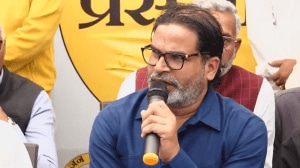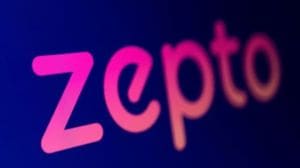Stay updated with the latest - Click here to follow us on Instagram
Far Right enters Germany Parliament in worst election showing by Angela Merkel’s CDU, SPD since 1949
Xenophobic nationalism has made a grand entry into the German national legislature in what has been one of the most monumental elections in the history of the Federal Republic of Germany. Conservative Angela Merkel won her fourth term as Germany’s Chancellor but her victory came as a bitter-sweet one due to a tectonic shift in Deutsche politik.
 German Chancellor and leader of the Christian Democratic Union CDU was reelected for a fourth term on Sunday. (Reuters)
German Chancellor and leader of the Christian Democratic Union CDU was reelected for a fourth term on Sunday. (Reuters)
Xenophobic nationalism has made a grand entry into the German national legislature in what has been one of the most monumental elections in the history of the Federal Republic of Germany. Conservative Angela Merkel won her fourth term as Germany’s Chancellor but her victory came as a bitter-sweet one due to a tectonic shift in Deutsche politik. Merkel’s conservative Christian Democratic Union (CDU) bloc and the Social Democratic Party (SPD) gave their worst showing since the 1940s in what proved to be a notable change of fortune for the German far-Right and the country as well. Conversely, it is also the best showing for a far-Right party since 1949 and that stands testimony to the changing colour of the German social and political fabric.
The most significant performance was that of the Alternative for Germany (AfD) party that won around 13 per cent votes. The xenophobic German nationalist AfD will send 94 members to the 630-member Bundestag (lower house of German Parliament). This also means that for the first time in history, an openly far-Right party will have significant presence in the Bundestag.
With 246 seats, Merkel’s bloc emerged as the clear winner securing around 33 per cent votes–even though it is a major drop from the over 41 per cent votes it garnered in 2013. This election was the worst showing for the CDU since 1949 when the first federal election was held in post World War-II in Germany. Even the SPD lost around 5 per cent votes. The SPD has always been one of the more dominant parties in Germany since the 1940s. However, with around 21 per cent votes, the performance has been dismal, especially considering the fact that SPD’s campaign was led by Martin Schulz, former president of the European Parliament.
The large takeaway was that Merkel was reelected despite a strong challenge from Schulz but returned on a weaker position. But the more worrying takeaway in the fast growing presence of the far-Right in the national legislature.
After the dust settles, it will be crucial to look at where Germany will move ahead. Some probable eventualities pose unique situations–which modern Germany and Europe may not be prepared to face. Merkel has to now stitch together a coalition and liberal pro-business Free Democratic Party and the Greens are seen as possible options for discussions. SPD has refused chances of a merger too. In the off chance SPD enters into a grand coalition with Merkel, AfD will be made the de facto Leaders of the Opposition i.e. Oppositionsführer.
As most parties have denounced the AfD’s toxic positions on issues, the party is unlikely to find support in the Bundestag and hence their position will not draw much power though the texture of the discourse is set to become more unsavoury. The least that AfD will hope to achieve is increased outreach for its ideas and prominent discussion of those ideas in the legislature for those to win greater respectability.
AfD has a rather unsettling record in state legislatures. It has shown a rasping form in regions like Saxony Anhalt where the discourse has been chauvinistic, xenophobic, anti-immigrant and pro-German nationalist. The party was able to challenge the CDU in Landtag but imploded on the way. The latest split seen in the party–a day after the result when one of AfD’s leading figures Frauke Petry walked out of a press conference and announced that she will sit as an independent MP in Bundestag–indicates the current state of things in the party.
The far-Right in Europe, just like in Germany, derives from authoritarian, eurosceptic, anti-immigrant, volkish and blood-and-soil nationalist pedigree. As it grows in number and comes out from the shadows, one of the bigger challenge in the long run is towards Europe’s postwar consensus. In the short term, though, the challenge will be Parliamentary management for Merkel, Schulz and their ilk. Europe’s most powerful country has still not been swayed by the populist force as previously seen in many first-world democracies. AfD will not have any role in government as well as European or global policy and that will be a consolation for many.
Merkel left very little space for political opponents to capitalise on her position and the major players failed to do so too. However, the far-Right, regarded as the nationalist fringe till now, has now got the opportunity of speaking time, government-funds, right to vote in legislature. Most would find this position disconcerting. AfD’s support is predominantly middle class, middle-aged working class men living in the eastern regions away from the western financial centres. This section feeds on the sentiment of being disenfranchised. The party also grabbed the opportunity to use the refugee crisis to their benefit and exploit Merkel’s monotonous pro-consensus campaign.
The steady rise of the fringe group born in 2013 to the 94-member political party of today is worrisome. But with at least eight out of 10 voters voting against the far-Right, assuming that Germany would rebound into a fascist form may be just flying off the handle. Due to the neuroses attached to the far-Right in Germany, a carefully crafted campaign to openly identifying itself as far-Right but not neo-Nazi was key to AfD’s performance. It moved with largely a single issue campaign from the breakout of the refugee crisis. The party has used it to fuel its xenophobic ideas around Muslims, migrants, Eurozone etc.
AfD, for now, seems to stand isolated in Bundestag and the onus will now be on the other parties to consolidate their earlier positions to strengthen the German democracy in elections to come.





- 01
- 02
- 03
- 04
- 05


























